Disclaimer: As an Amazon Associate I earn from qualifying purchases. Therefore, we may collect a share of sales from the links on this page, at no extra cost to you!
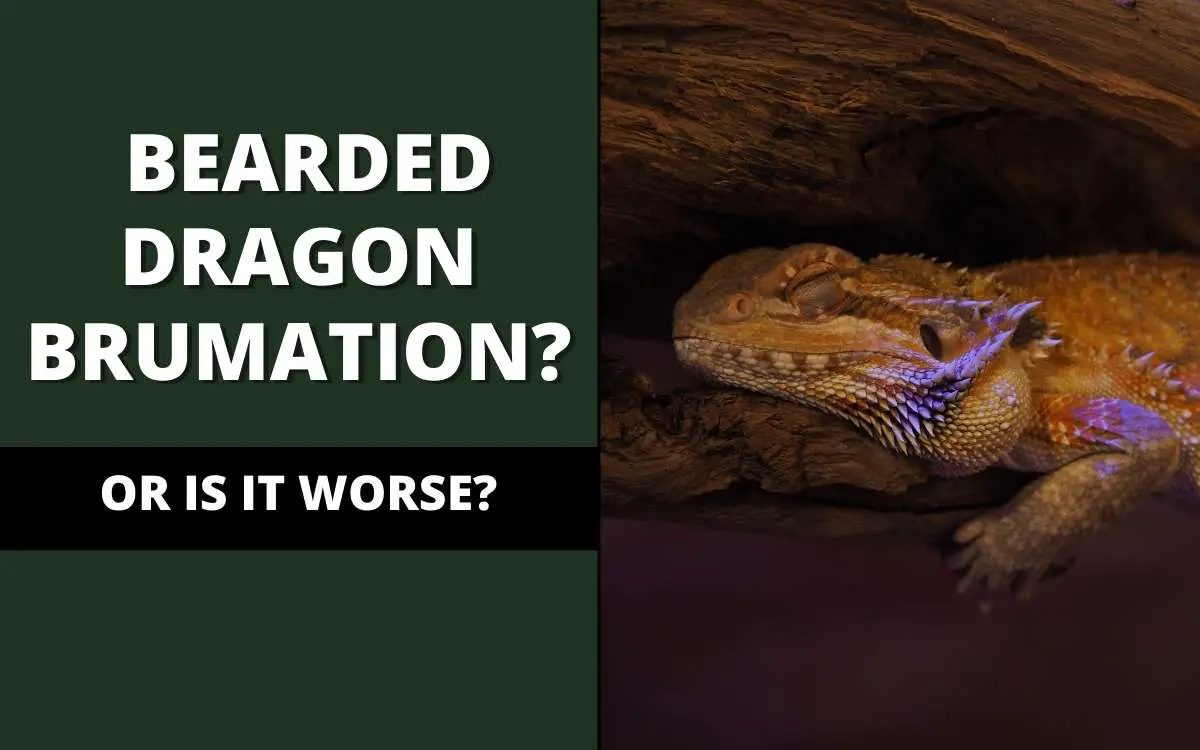
Bearded Dragon Brumation Or Dead? (6 Common Signs!)
You walk in on what looks like a dead bearded dragon, but you wonder, is my bearded dragon brumation or dead?
This is a commonly asked question because, truthfully, it can be hard to tell. During the brumation process, bearded dragons become lethargic, disinterested in food, and may even become completely still.
It’s no wonder why many people can’t differentiate a dead bearded dragon from one that is in the brumation process.
However, the biggest sign that your bearded dragon has died (rather than in brumation) include the following: They have turned white, they has no reaction when you flip them over, and their body is cold and stiff to the touch.
Although, even if your bearded dragon does not have any of these signs, that does not mean you’re in the clear just yet. Your beardie may have a severe illness and be close to dying.
Hence, in order to help you determine whether your beardie is simply in brumation, dead, or has an illness – we’ve decided to create this short little guide: “Bearded Dragon Brumation or Dead”.
Keep reading to learn some crucial information that may save your beardies life!
Table of Contents
So, what is Brumation?
In order to understand if your bearded dragon is brumating, you first must understand what exactly brumation is – and why bearded dragons do it.
Brumation is basically hibernation – but for reptiles. In the wild, brumation helps bearded dragons conserve their energy during the winter months.
During this time, bearded dragons will typically show signs of sluggishness, a lack of appetite, lethargy, and sometimes, a complete lack of activity.
In the wild, brumating bearded dragons will typically hide in leaves, under logs, or behind rocks. This is in order to keep away from the elements. In captivity, brumating bearded dragons will usually stay in their hideout for extended periods of time.
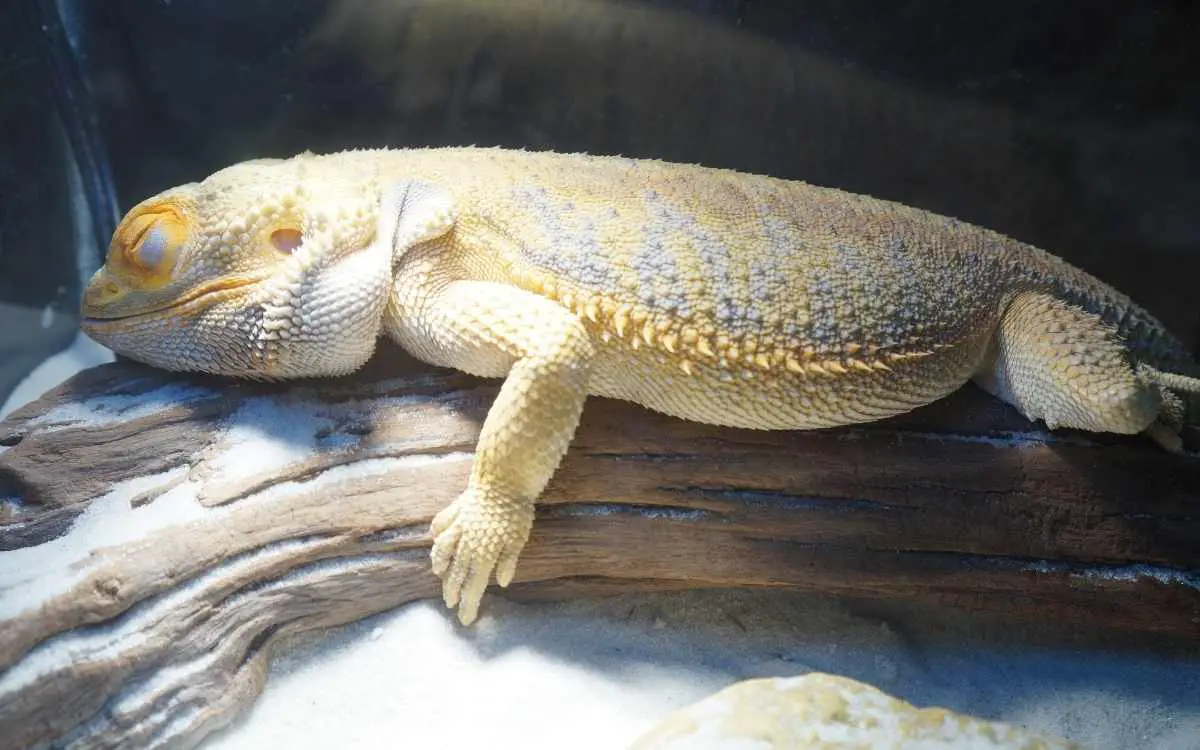
Why Bearded Dragons Brumate in Captivity
Your next question probably is – why do captive bearded dragons brumate if they don’t experience ‘winter’?
That’s a great question and the simple answer is – they’re wired to do it. Brumation is something that is in the DNA of bearded dragons. They’re going to do it – whether they’re in captivity or not.
However, brumation in captive bearded dragons is not at all consistent. Sometimes, they’ll go several years without brumating and then one day they’ll suddenly decide to go into brumation.
Alternatively, some bearded dragons may never brumate. It’s something that is mostly out of our control, as beardie owners.
However, some people speculate that if your beardie is by a window and can see the seasons changing, this may trigger brumation.
Additionally, some people think that when your house gets cold, it may also trigger your bearded dragon to go into brumation.
Therefore, captive bearded dragons may go into brumation any time of the year, including summer.
Related: Learn this little-known secret to keeping your bearded dragons teeth cleaned!
Bearded Dragon Brumation Signs
There are several key indicators that your bearded dragon may be in brumation – or about to brumate. These signs can vary from beardie to beardie, so keep that in mind.
Lack of Appetite
If your bearded dragon has recently started eating less, this may be a sign that your beardie is in the brumation process (or about to be).
During the winter months, plants start dying and crickets and other bugs become scarce. Therefore, your beardie will enter brumation to conserve its energy during this period of little to no food.
Lethargy
Additionally, your bearded dragon will almost always become lethargic during brumation. They will likely not want to be handled and become extremely sluggish.
This is because brumating bearded dragons are entering a state where they’re conserving energy. During this state, they will sleep a lot, stay inside their hide, and stay out of natures way.
Lack of Basking
Lastly, if your bearded dragon is basking less, or not basking at all, this is a big sign that your beardie is about to go into brumation.
As you know, bearded dragons absolutely love to bask. They’re practically always under their heat lamp. However, during brumation, bearded dragons will typically stay in their hide and away from their usual basking spot for long periods of time.
Sometimes, a bearded dragon will keep its mouth open to conserve energy while brumating.
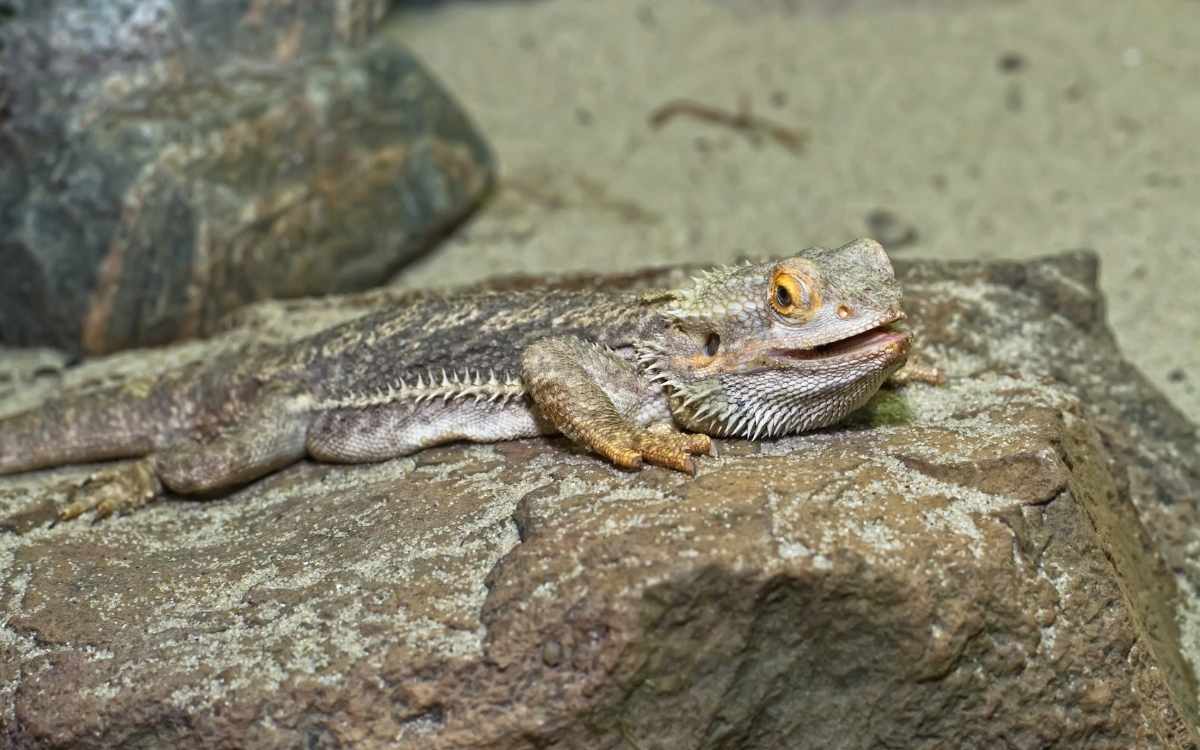
How Long Does Bearded Dragon Brumation Last?
The length of time your bearded dragon will brumate will vary greatly. Some bearded dragons will brumate for one or two weeks while other bearded dragons will stay in brumation for three or four months.
There’s really no way to control how long your bearded dragon will be in brumation. The best thing you can do is to leave your bearded dragon along during this time. It’s a natural process and it should not be disrupted.
What Age Do Bearded Dragons Brumate?
Bearded dragons typically start the brumation process after they are a year old. However, don’t be surprised if your beardie begins brumating even earlier.
Again, all bearded dragons handle brumation differently. Some never do it, some do it every year, some do it when they’re young, and some don’t start until they’re several years old.
Signs your Bearded Dragon is Dead
Oftentimes, people will mistake a bearded dragon that is in brumation for a bearded dragon that is dead.
However, more than likely, if your bearded dragon is young, healthy, and you’ve taken proper care of it, it is probably just brumating. Unfortunately, anything can happen, however.
Therefore, let’s go over some signs that your bearded dragon has died.
Stiff Body
If your bearded dragons body has stiffened up, it may be a sign that it has died. A bearded dragon in brumation will have soft limbs. Hence, if the limbs are extremely stiff, your beardie may have died.
Your Bearded Dragon Has Turned White
Even during the brumation phase, your bearded dragon should maintain its color (outside of slight fading when shedding). Therefore, if your bearded dragon has turned white or gray in color, it is probably dead.
No Movement
If your bearded dragon has died, it will have no movement at all. Pick your bearded dragon up and flip it onto its belly. If it doesn’t squirm or show any signs of life, it is more than likely dead.
When to Seek a Veterinarian
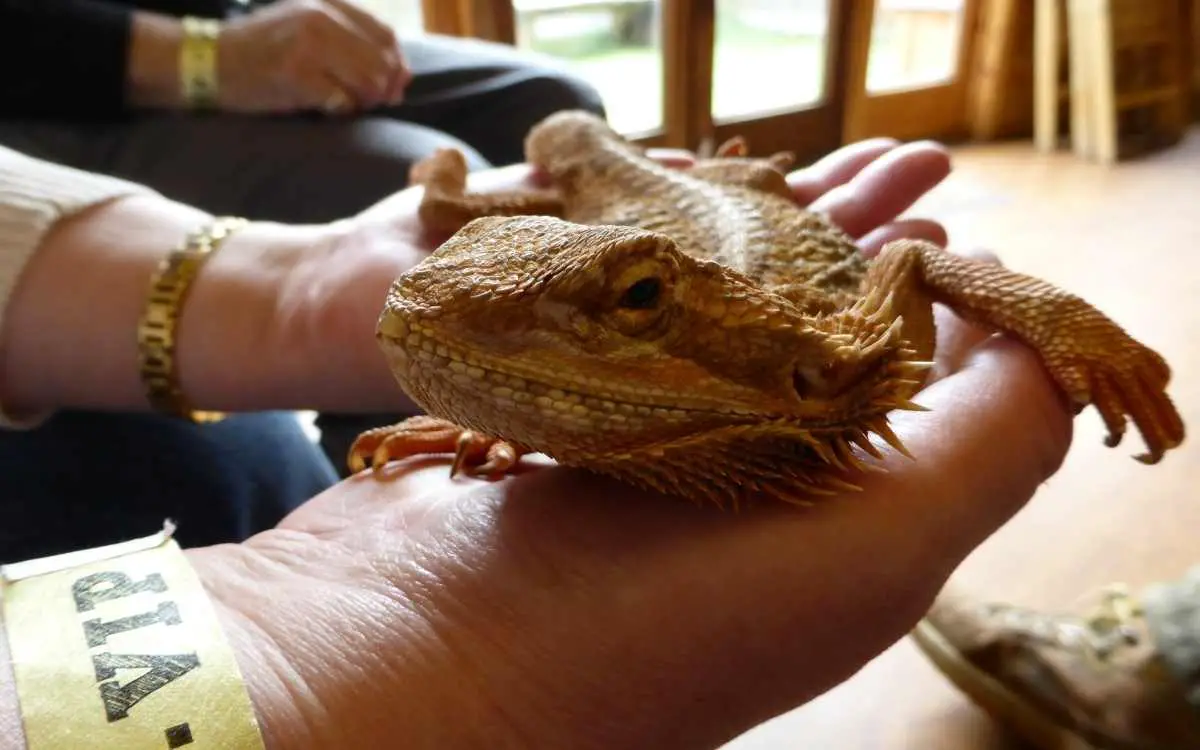
If you’re worried that your bearded dragon has died, don’t automatically start digging its grave.
Sometimes, bearded dragons may seem dead when they are brumating. Other times, your bearded dragon may have an illness or paralysis, resulting in no movement.
It’s important to always contact a veterinarian and see if there’s anything they can do.
Bearded Dragon Brumation or Sick?
Many people may be under the assumption that their bearded dragon is about to go into brumation – or is already in brumation. However, that’s not always the case.
Unfortunately, a bearded dragon that has parasites will display nearly the exact signs of a bearded dragon that is about to go into brumation. Additionally, a bearded dragon that has mouth rot can also display similar symptoms if the case is severe enough.
Therefore, it is strongly recommended that you seek a veterinarian if your beardie is showing signs of brumation.
Bearded Dragon Brumation Tips
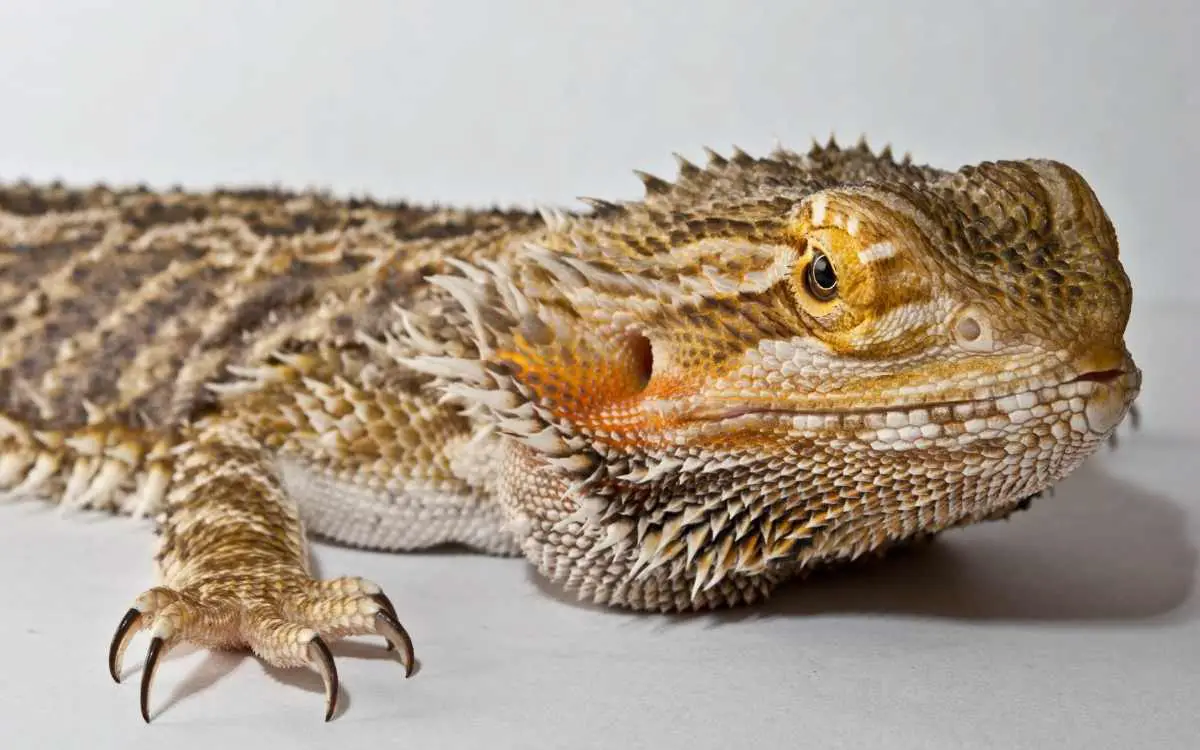
If you do believe your bearded dragon is about to go into brumation, below are some tips that will help make the process go a bit smoother.
Leave Your Bearded Dragon Alone
As we discussed, bearded dragons go into a state of conserving energy when they are brumating. They will sleep a lot, hide a lot, and not do much of anything.
This process can be very stressful for your beardie. Therefore, its best not to disturb them while they’re in this state. As much as you love to handle your bearded dragon – it’s strongly advised that you do not mess with them during brumation.
Don’t Try to Stop Them
Some people attempt to stop or speed up the brumation process. However, we strongly discourage this.
Brumation is a natural part of a bearded dragons life. They know when to brumate and they know how long they need to brumate. You should never try to interfere with this process.
Give Them a Bath Beforehand
Because bearded dragons do not eat during brumation, there is no need for their body to digest food. Therefore, if your bearded dragon has leftover food in its belly, it can actually rot and make them extremely sick.
Hence, if you believe your bearded dragon is about to go into brumation, give them a bath before their last meal. Giving them a bath will allow them to empty their stomach one last time.
Don’t Force Your Bearded Dragon to Eat
Many people become concerned during brumation because they believe their bearded dragon will die of starvation. However, this could not be further from the truth.
Bearded dragons are built to go long periods of time without eating. This is especially true while they are brumating.
Although your beardie may lose a few grams during brumation, never try to force them to eat. As we mentioned in the previous section, leftover food in the stomach can rot and lead to parasites. You definitely don’t want that!
Make Sure Your Bearded Dragon Stays Hydrated
Although bearded dragons require no food during brumation, they do still require hydration.
Bearded dragons, in general, do not require a lot of water. In fact, most people don’t even keep a water dish in their enclosure because they get hydrated from their veggies.
However, your bearded dragon isn’t going to be eating any veggies during brumation. Therefore, you can one of two things.
Your first option is to place a water bowl inside your enclosure. If your beardie gets thirsty, they’ll come out and drink some.
Your second option is to drip a little bit of water on their nose. More than likely, they will lick the water right off of their nose!
What to Do After Brumation
Once your bearded dragon is done with its brumation, it should go right back to normal.
It may or may not work its way back into its regular diet, so be patient with your beardie. Keep this is mind, as you don’t want to leave any uneaten crickets running around the enclosure.
Bearded Dragon Brumation Or Dead – Final Thoughts
Hopefully, this article, “Bearded Dragon Brumation Or Dead” has helped you determine your beardie is simply in brumation and has not died!
However, regardless of the symptoms your beardie is showing, we strongly advise that you seek out a veterinarian. Even if your beardie displays signs of brumation, you still want to make sure they haven’t gotten parasites.
So, we hope you learned something new. If you have other questions regarding your bearded dragon, feel free to search for them on our website!
As always, have a great day, fellow reptilians!
